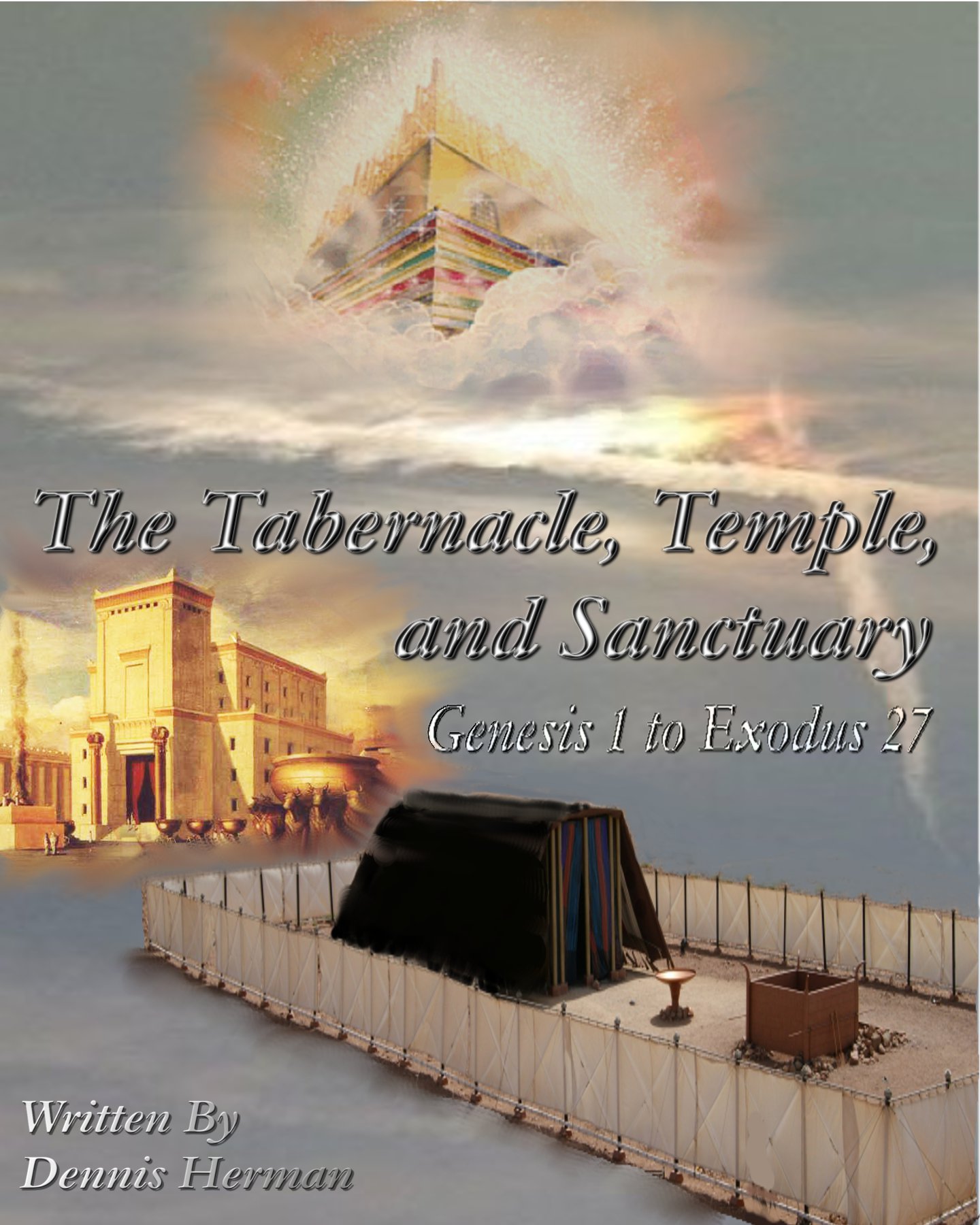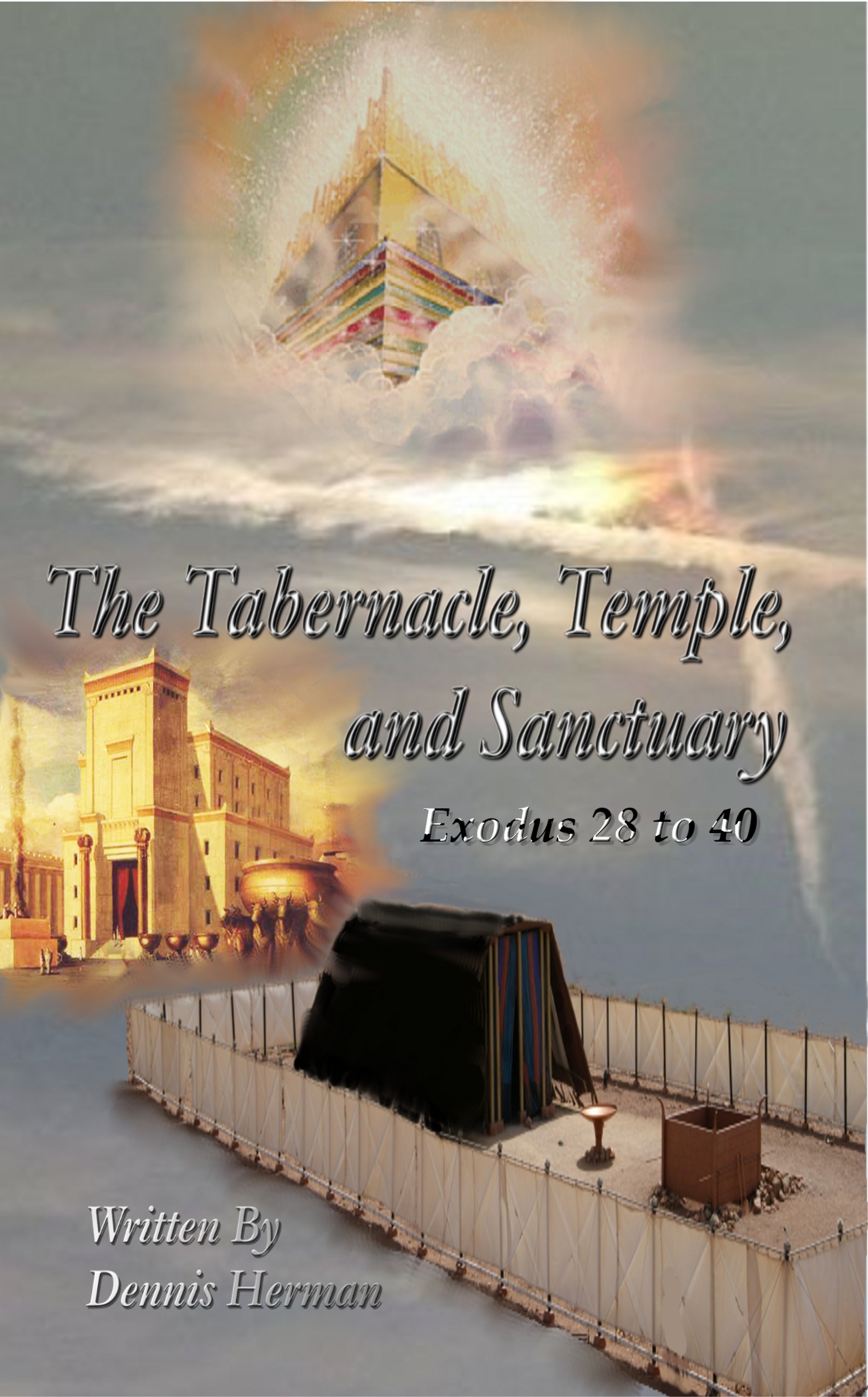Psalms 72:1-8 NLTse Give your love of justice to the king, O God, and righteousness to the king’s son. (2) Help him judge your people in the right way; let the poor always be treated fairly. (3) May the mountains yield prosperity for all, and may the hills be fruitful. (4) Help him to defend the poor, to rescue the children of the needy, and to crush their oppressors. (5) May they fear you as long as the sun shines, as long as the moon remains in the sky. Yes, forever! (6) May the king’s rule be refreshing like spring rain on freshly cutgrass, like the showers that water the earth. (7) May all the godly flourish during his reign. May there be abundant prosperity until the moon is no more. (8) May he reign from sea to sea, and from the Euphrates River to the ends of the earth.
In this Psalm David asked God to provide justice for the poor and needy. Did David provide justice to the poor and needy as king? His reign began with a few hundred followers during the years he was pursued by king Saul. People who were over taxed and found burdens under Saul too much to bear found David in his hiding places and the strong holds God led him to. God’s Spirit led people with burdens to David while Saul with an army of thousands and offering rewards beyond imagination could not find him. These are lessons David should have remembered for life. These are qualities God developed in the young king he needed to lead a nation and hand down to his sons. His son, Solomon, raised taxes and enslaved people to build his temple, home, and homes for his many wives. Because David is asking God to help his son judge righteously, this Psalm points us to the moment when David handed his kingdom to Solomon in 1 Chronicles 23. This gives us one point on a time line with details to look at and compare with the parallel texts from another lesson repeated at another time in history.
There are only a few key words David used in this prophecy. Once again we see key words that are the same, similar, and related. Making a list of these helps to see the author’s main thought.
King
Help, rescue
Judge, treated
Poor, needy
Rain, showers, water
Flourish, prosperity
Grass, abundant, and reign are key words repeated or related to words in other parts of Psalm 72.
Based on the list of key words, David shows the main theme is his prayer to God to help his son judge the poor and needy righteously so they can flourish in prosperity. We can see how rain and water are spiritual symbols related to the lesson. When we search one of key words, judge, it is used in the gospels only a few times. One of the chapters judge points to is John chapter 16. It’s a good chapter to use as a comparison based on the fact the introductions and summations share the same spiritual theme.
John 16:9-16 NLTse The world’s sin is that it refuses to believe in me. (10) Righteousness is available because I go to the Father, and you will see me no more. (11) Judgment will come because the ruler of this world has already been judged. (12) “There is so much more I want to tell you, but you can’t bear it now. (13) When the Spirit of truth comes, he will guide you into all truth. He will not speak on his own but will tell you what he has heard. He will tell you about the future. (14) He will bring me glory by telling you whatever he receives from me. (15) All that belongs to the Father is mine; this is why I said, ‘The Spirit will tell you whatever he receives from me.’ (16) “In a little while you won’t see me anymore. But a little while after that, you will see me again.”
John shows us when this prophecy will be fulfilled and by whom. Of course Jesus is the Son who will reign forever and judge the whole world righteously. This may be common knowledge among Christians, but having head knowledge is never an excuse to be lazy, ignore God’s rules on Bible Study and drift along using your own judgment and interpretations. In reality, self interpretation eliminates influence by God’s Spirit blocking the opportunity to see the deeper spiritual lesson. One of the details easily missed is the contrast between these chapters. David asked for God to give his son wisdom to judge poor and needy people righteously. Jesus says, “Judgment will come because the ruler of this world has already been judged.” Jesus is obviously referring to Satan as the ruler of this world. “Satan, who is the god of this world, has blinded the minds of those who don’t believe. They are unable to see the glorious light of the Good News. They don’t understand this message about the glory of Christ, who is the exact likeness of God.” (2 Corinthians 4:4 NLTse). To understand and explain this contrast we have to look at how the two historical events intersect and how details in each compare to one another.
The first step is to identify the point in time David asked God to guide his son. We find one place recorded in 1 Chronicles 23. When David was an old man, he appointed his son Solomon to be king over Israel. Put yourself in David’s place. He didn’t have the best relationship with his numerous sons. David appointed Solomon king because his half brother, Adonijah, was in the middle of a political movement to crown himself king. David’s age, pressure from Adonijah, Nathan his prophet, and one of his wives, Bathsheba, made David forget how he was chosen as king. Samuel was told to go appoint a new king. Samuel was told where to go, but not who to anoint. Samuel followed God’s command, went to Jesse’s home and looked over all of his sons. God didn’t chose any of them. David, the one God chose was out in the field tending his father’s flock. Image what went through David’s mind as he walked along the long road home to find out why he was called out of the field. There are a lot of spiritual lessons in that story we don’t have room to cover here. When you think about it, the story becomes a personal matter between you and God to see what relationship the lessons have with your personal walk with God. How many details have you forgotten over your life time? It seems David forgot most of what he was supposed to learn over the years. David was only a boy when God chose him, but God took him through a series of lessons to prepare him to lead Israel. While he was hunted by king Saul, David learned to put his faith in God and saw how God was always there with him. Now David was facing another trail and test, but he forgot how to pray and wait for God’s answer. The pressures of running a kingdom were too much for him alone. Read Kings and Chronicles. Look for little points most people pass over. Look at all the instances when David prayed pay attention to why he prayed. Also pay attention to how David inquired, or asked God’s advise before he was crowned and compare that to how David inquired towards the end of his reign. Continue on and look at details showing how Solomon communicated with God. Most people only cover two major points and miss a few smaller details showing what direction Solomon was headed.
Adonijah’s overthrow wasn’t the first time David had family problems. Absalom, his third son staged an over throw years earlier. It began over an incident with one of David’s daughters, Tamar. Her half brother Amnon, David’s oldest son fell in love with her. He eventually raped Tamar then sent her away in disgrace. Absalom conceived a plot to kill Amnon by inviting all the king’s sons to shear the sheep in the countryside. When Amnon was killed, a messenger told David all his sons were slain. After the pain of dealing with strife among his sons, David went through the anguish of learning all his sons were dead. It was one of the most difficult days in David’s life as he wept over the loss of all his sons. David felt a sense of relief when he found out only Amnon was killed. David knew there was strife between Amnon and Absalom for years. Still, David felt the loss of his eldest son, his first born. For his actions, David banished Absalom from Jerusalem.
Later Absalom was called back to Jerusalem by his father the king. Coming home wasn’t enough for Absalom, he wanted more. After gaining support, Absalom made the decision to lead a military campaign against his father. Instead of fighting, David packed up the family, gathered his followers and left Jerusalem. Once again David sought God and his advise. David’s forces met Absalom’s army and defeated them. Absalom tried fleeing though a woods but got caught up in a tree by his hair where he was killed. Once again David’s heart fell when he learned about the death of another son. Even though Absalom was a rebellious son, it didn’t do anything to make David stop loving him.
After David saw the pain and suffering rebellion caused, lessons didn’t sink in like they should have. Looking back at events leading up to the point David appointed Solomon king, we see details on how David rebelled against God. In the previous chapter we see how David continued to prepare to build a temple after God told him not to. Something led David to believe God wanted a stone temple. Something made David forget part of God’s message. “For when you die and join your ancestors, I will raise up one of your descendants, one of your sons, and I will make his kingdom strong. He is the one who will build a house–a temple–for me. And I will secure his throne forever. I will be his father, and he will be my son. I will never take my favor from him as I took it from the one who ruled before you. I will confirm him as king over my house and my kingdom for all time, and his throne will be secure forever.” (1 Chronicles 17:11-14 NLTse). When David called Solomon and told him the story, he changed a few details. “Then David sent for his son Solomon and instructed him to build a Temple for the LORD, the God of Israel. “My son, I wanted to build a Temple to honor the name of the LORD my God,” David told him. “But the LORD said to me, ‘You have killed many men in the battles you have fought. And since you have shed so much blood in my sight, you will not be the one to build a Temple to honor my name. But you will have a son who will be a man of peace. I will give him peace with his enemies in all the surrounding lands. His name will be Solomon, and I will give peace and quiet to Israel during his reign. He is the one who will build a Temple to honor my name. He will be my son, and I will be his father. And I will secure the throne of his kingdom over Israel forever.’ (1 Chronicles 22:6-10 NLTse). God made it clear He will confirm His Son and appoint Him King. David decided to make the choice himself. David also decided which son would build the temple.
A stone temple wasn’t what God wanted. When God told David about a king who was going to reign forever, He was referring to His Son Jesus. This didn’t stop David from sparing no expense for the temple he wanted built. “I have worked hard to provide materials for building the Temple of the LORD–nearly 4,000 tons of gold, 40,000 tons of silver, and so much iron and bronze that it cannot be weighed. I have also gathered timber and stone for the walls, though you may need to add more.” (1 Chronicles 22:14 NLTse). I am donating more than 112 tons of gold from Ophir and 262 tons of refined silver to be used for overlaying the walls of the buildings. (1 Chronicles 29:4 NLTse) For the construction of the Temple of God, they gave about 188 tons of gold, 10,000 gold coins, 375 tons of silver, 675 tons of bronze, and 3,750 tons of iron. (1 Chronicles 29:7 NLTse) This proved not to be one of David’s best decisions. Looking ahead we’re shown what happened to all the gold and silver David collected for the temple. In the fifth year of King Rehoboam’s reign, King Shishak of Egypt came up and attacked Jerusalem. He ransacked the treasuries of the LORD’s Temple and the royal palace; he stole everything, including all the gold shields Solomon had made. (1 Kings 14:25-26 NLTse). David’s grandson lost all the gold collected for the temple as well as everything Israel took out of Egypt. Talk about payback with interest. There was a reason God gave all that wealth back to Egypt. It wasn’t only the actions of Solomon’s son Rehoboam that led to such a defeat. When we look back on David’s life we see how he failed to learn some of the lessons God taught and failed to hand important lessons down to his sons.
1 Chronicles 21 tells us how David decided to number Israel. His general Joab warned David about such actions, but David ordered him to carry out his command. Joab thought he could save Israel through a technicality. Joab numbered all the men old enough to serve in the army, but left out the Levites. This didn’t stop God from giving David a choice of how his kingdom was going to suffer for his poor decision. Did David learn from his mistake after seeing thousands die? We see the answer to that question in 1 Chronicles 23. When David was an old man, he appointed his son Solomon to be king over Israel. David summoned all the leaders of Israel, together with the priests and Levites. All the Levites who were thirty years old or older were counted, and the total came to 38,000. Then David said, “From all the Levites, 24,000 will supervise the work at the Temple of the LORD. Another 6,000 will serve as officials and judges. There are a lot of spiritual lessons to learn when we study the effects of government control over religion. In this case we see another example of David taking matters into his own hands by numbering then appointing roles to the Levites, God’s chosen priests. Why did David decide to test God a second time? When you think of a man with 188 tons of gold, what more could he ask for? When we look for examples of attributes David handed down to his sons, we notice the family structure with many wives as one of the qualities that appealed to his sons. If we look close we also see the warrior attitude. Numbering Israel regardless of God’s warning and the price they had to pay is another family trait. Solomon took a census of all foreigners in the land of Israel, like the census his father had taken, and he counted 153,600. He assigned 70,000 of them as common laborers, 80,000 as quarry workers in the hill country, and 3,600 as foremen. (2 Chronicles 2:17-18 NLTse). It seems when men have power, the need to measure it is an attitude passed down through generations.
This wasn’t the first time king David got involved in religious matters. 1 Chronicles 17 tells us how David decided to move the ark to Jerusalem. David and the priests should have known how to transport the ark and when. But instead of consulting God and the laws given through Moses, David decided to move the ark by using the same method the Philistines used when they returned the ark after experiencing a series plagues. So David had a new cart made and placed the ark on it for its journey to Jerusalem. Most people telling this story make the same mistake David did and miss the same point he missed. Moses and Joshua never moved the ark without being led by the pillar of fire and cloud that guided them. David never received such a sign. God never told David to separate the ark from the Tabernacle. David removed the symbol of God’s law from the symbols of Christ pointing to salvation. It was never God’s plan to separate the law from salvation. David made that decision on his own without considering the spiritual implications. Once it was done, Israel lost all hope of becoming the guiding light God choose them to be.
When we look ahead from the point in history when Solomon became king, we see another series of poor decisions. Solomon made an alliance with Pharaoh, the king of Egypt, and married one of his daughters. He brought her to live in the City of David until he could finish building his palace and the Temple of the LORD and the wall around the city. (1 Kings 3:1 NLTse). Marrying a high priestess from Egypt was only the beginning of Solomon’s mistakes.
Solomon admired king Hiram’s kingdom in Tyre. Solomon wanted to model his kingdom after Tyre which was the trade capital of the world at that time. Solomon thought Hiram’s success was due to his view on religious tolerance. Solomon was convinced Hiram’s model would bring peace and prosperity to his kingdom. Hiram did tolerate all forms of religion in his kingdom and was interested in learning more about David’s God. After David failed to provide the answers Hiram was looking for, he tried a second time with Solomon. Instead of taking advantage of the open door to share God with the king of Tyre, Solomon decided to use the open hand for his own purposes. Instead of telling Hiram about the true and living God, Solomon used his friendship to obtain materials and skills he needed to build the temple. This shows how a one track mind can loose sight of important details. When God wanted the Tabernacle build, He provided wisdom for all the craftsmen and women as well as all the materials. Enlisting Hiram’s services and turning the design over to him resulted in a number of pagan articles added to the construction. These articles replaced the symbols God designed in His Tabernacle — symbols that pointed to Jesus were lost. It’s no wonder God returned gold, silver, and more to Egypt. A sign of how Israel returned to slavery in the promised land.
Solomon’s plan for peace and prosperity didn’t include God. Instead he made treaties by marrying king’s daughters. This wasn’t enough for Solomon as he married one woman after another and also increased his collection of prostitutes. Now King Solomon loved many foreign women. Besides Pharaoh’s daughter, he married women from Moab, Ammon, Edom, Sidon, and from among the Hittites. The LORD had clearly instructed the people of Israel, ‘You must not marry them, because they will turn your hearts to their gods.’ Yet Solomon insisted on loving them anyway. He had 700 wives of royal birth and 300 concubines. And in fact, they did turn his heart away from the LORD. (1 Kings 11:1-3 NLTse). What kind of example was that for his nation and family? Its no wonder his son Rehoboam lost the majority of the kingdom. David’s influence as a father diminished in one generation. The pull of the world proved to be too much for Solomon. With all his wisdom, Solomon was not able to pass much of anything to his son Rehoboam.
The main theme running through all these mistakes is the important role a father has with his family. What kind of father were those kings who sent their daughters to marry Solomon with so many wives? Don’t make the same mistake they made. Don’t go judging based on stories you heard about the culture in those days. That was one of the deceptions Satan used to turn Solomon’s heart away. Judge based on God’s standards. Tradition never changed God’s mind on one of His laws. Take a close look at other stories in Kings and Chronicles. They follow the same process as this series of stories. God keeps track of the sins and eventually there is a price to pay. We all share the same faults. No one spends enough time with their kids. We all forget to teach lessons or wait for another day, until it’s too late. How different things may have been if David had stuck with one wife making her bone of his bone and flesh of his flesh and shared everything with her while working together to raise their children as confident, successful servants of God.
How does all this information relate to the time frame before and after Jesus taught His disciples He was going to judge the world? To learn how they compare, we have to look to previous and following verses and chapters in John’s gospel. We’ve seen how David and Solomon failed to teach their sons. What did Jesus teach His disciples? This is my command: Love each other. “If the world hates you, remember that it hated me first. (John 15:17-18 NLTse). Two verses sum up Jesus’ lesson. Loving one another extended beyond their little group. David prayed his son would be able to judge righteously, but didn’t set a very good example. Jesus set His example by the life He led and the people He helped. Did you ever pray and think about Jesus’ life, the King of the universe and David’s life and the example he set? Quite a contrast. Jesus had Judas to carry a money sack and had Peter fish for a coin to pay tribute tax while David collected hundreds of tons of gold and silver. Love goes beyond the money and gifts you give your family.
Jesus also taught His disciples how the world would hate them because they hated Him. Think of this contrast. Everyone wanted to be David’s and Solomon’s friend. Was it their leadership qualities, their walk with God, or their money? Who was a better leader, David or Jesus? Who had a closer walk with God, Solomon or Jesus? What made the world love David and Solomon? What made the world hate Christ?
“I have loved you even as the Father has loved me. Remain in my love. When you obey my commandments, you remain in my love, just as I obey my Father’s commandments and remain in his love. I have told you these things so that you will be filled with my joy. Yes, your joy will overflow! This is my commandment: Love each other in the same way I have loved you.” (John 15:9-12 NLTse). Jesus taught His disciples the relationship between love and God’s commandments. The lessons go beyond this simple statement. This was a reminder for the disciples who saw Jesus’ love in action everyday. Jesus healed Peter’s mother, raised His friend Lazarus from the grave, cleansed lepers, gave sight to the blind, made the lame walk, fed thousands, and many more miracles in addition to patiently teaching His disciples how to understand scripture as He explained the plan of salvation in parables. When you think of it, Jesus was the perfect father figure. Why did Jesus teach all of this? “When you produce much fruit, you are my true disciples. This brings great glory to my Father.” (John 15:8 NLTse).
Jesus began the last lesson for His disciples before the cross by telling them, “”Don’t let your hearts be troubled. Trust in God, and trust also in me. There is more than enough room in my Father’s home. If this were not so, would I have told you that I am going to prepare a place for you?” (John 14:1-2 NLTse). The first thing Jesus wanted His disciples to remember was not to worry, He was coming back for them. Jesus also established the major role of His Kingdom, to give. Jesus promised them a place in His Father’s home. This is only the beginning of what Jesus planned on giving them and us. This makes me wonder why few people are interested in studying about God’s Kingdom in Heaven. It’s a place beyond our imagination with details scattered throughout scripture. Many of the details are taught on the spiritual level left there for the true seekers of God’s heart to find. David died with ten billion dollars worth of gold based on today’s market prices. David didn’t take any of it with him, but he will see the streets of gold and walls of jasper in Heaven. What kind of impression could David had made if he went around his kingdom helping poor and needy people instead of simply praying for them? God often answers prayers before their spoken. God gave David a way of teaching Solomon and his other sons how to judge righteously, but foolishly let opportunities pass as he worked on plans fulfill his ambitions. Imagine the temple David could have raised up for God by providing a comfortable life for widows, orphans, blind and lame people in his kingdom. David helped one lame person. The king then asked him, “Is anyone still alive from Saul’s family? If so, I want to show God’s kindness to them.” Ziba replied, “Yes, one of Jonathan’s sons is still alive. He is crippled in both feet.” “Where is he?” the king asked. “In Lo-debar,” Ziba told him, “at the home of Makir son of Ammiel.” So David sent for him and brought him from Makir’s home. His name was Mephibosheth; he was Jonathan’s son and Saul’s grandson. When he came to David, he bowed low to the ground in deep respect. David said, “Greetings, Mephibosheth.” Mephibosheth replied, “I am your servant.” “Don’t be afraid!” David said. “I intend to show kindness to you because of my promise to your father, Jonathan. I will give you all the property that once belonged to your grandfather Saul, and you will eat here with me at the king’s table!” (2 Samuel 9:3-7 NLTse). Why didn’t this touch David’s heart the way it should have?
Jesus continued to explain how He will continue to give in the summation to John 14. “I am leaving you with a gift–peace of mind and heart. And the peace I give is a gift the world cannot give. So don’t be troubled or afraid. Remember what I told you: I am going away, but I will come back to you again. If you really loved me, you would be happy that I am going to the Father, who is greater than I am. I have told you these things before they happen so that when they do happen, you will believe. “I don’t have much more time to talk to you, because the ruler of this world approaches. He has no power over me, but I will do what the Father requires of me, so that the world will know that I love the Father. Come, let’s be going. (John 14:27-31 NLTse). What more could we ask for beyond peace of mind and heart, one of Jesus’ greatest gifts? How much peace of mind did David have? Have you reached a point in your relationship with Christ to feel the peace of mind and heart He offers? Do you know Jesus well enough to ask Him for peace of mind and most of all, trust Him enough to accept His peace in your heart? Not many people are ready to leave the world behind and look at Jesus and the vision of Heaven He offers. When Jesus said, ” the ruler of this world approaches. He has no power over me,” Jesus included His followers who really know Him.
Jesus knew the Father had given him authority over everything and that he had come from God and would return to God. So he got up from the table, took off his robe, wrapped a towel around his waist, and poured water into a basin. Then he began to wash the disciples’ feet, drying them with the towel he had around him. (John 13:3-5 NLTse). Before Jesus began that final lesson with His disciples, He set a physical example for His disciples by washing their feet. It was time for Jesus to show how His role is to minister to His servants. Jesus became the servant of servants. David is a well known symbol pointing to Jesus. It seems there are more contrasts than parallel examples. What did God see in David? God never forgot the boy in the field who turned his heart to God and trusted in God when he faced a giant. God never forgot the boy who knew he was to weak and small to rule Israel on his own. God didn’t forget the man on the run from king Saul who turned to God knowing He knew the way to safety. David wrote about the times God saved him. David wrote about how God protected him from all his enemies. In his old age David still had a part of his heart he wanted to give to God. “I know, my God, that you examine our hearts and rejoice when you find integrity there. You know I have done all this with good motives, and I have watched your people offer their gifts willingly and joyously.” (1 Chronicles 29:17 NLTse). God knew David made mistakes. God knew David wasn’t perfect, but still accepted and loved David who had good intents, but never mastered the art of putting Satan and the world behind himself and making a total commitment to God. Which one of us are ready for that commitment?
John 16:1-8 NLTse “I have told you these things so that you won’t abandon your faith. (2) For you will be expelled from the synagogues, and the time is coming when those who kill you will think they are doing a holy service for God. (3) This is because they have never known the Father or me. (4) Yes, I’m telling you these things now, so that when they happen, you will remember my warning. I didn’t tell you earlier because I was going to be with you for a while longer. (5) “But now I am going away to the One who sent me, and not one of you is asking where I am going. (6) Instead, you grieve because of what I’ve told you. (7) But in fact, it is best for you that I go away, because if I don’t, the Advocate won’t come. If I do go away, then I will send him to you. (8) And when he comes, he will convict the world of its sin, and of God’s righteousness, and of the coming judgment.
John’s introduction explains what judgment means to Jesus’ followers by linking it to the word convict. God’s Spirit convicts. Which means it’s not your job to judge. There are two sides to the Spirit’s conviction. It’s the constant consideration of right and wrong. Jesus tells us our choices will not always agree with the world. As a matter of fact the world will hate His followers because of the example they set. Their example is a living reminder of the convictions the world is trying to push aside. If they push aside God’s Spirit and His convicting power, they’ll push away every reminder, including you. God’s Spirit continues to work on Jesus’ followers. One of the things He convicts and teaches them about is judgment of the world. No one is qualified to judge another person except for the only person to lead a perfect life in this world. That person is Jesus, who died to earn that role. Let the person without sin cast the first stone. All of His followers know what this means because they have a close relationship with His Spirit and listen to His Word.
When David prayed God would give his son skills to judge, he knew God’s Spirit is able to train, guide, and instruct. What David knew but had a difficult time accepting is the convicting power God’s Spirit had in his life. We all have trouble with this. Living in a world thriving on gossip, judgment, and power, it’s tough to separate yourself enough to shut out the world and open your heart, eyes, and ears to God. It’s difficult to give up power and glory the world strives after. The most difficult part is giving up the worldly role of honor and taking the lower position the world looks down on, but real believers look up to. This is the movement Jesus talked about in His short parable. “When you are invited to a wedding feast, don’t sit in the seat of honor. What if someone who is more distinguished than you has also been invited? The host will come and say, ‘Give this person your seat.’ Then you will be embarrassed, and you will have to take whatever seat is left at the foot of the table! “Instead, take the lowest place at the foot of the table. Then when your host sees you, he will come and say, ‘Friend, we have a better place for you!’ Then you will be honored in front of all the other guests. For those who exalt themselves will be humbled, and those who humble themselves will be exalted.” (Luke 14:8-11 NLTse).
When we compare the introduction of John 16 with Psalm 72, we see judgment of the poor and needy is the work of God’s Spirit. David’s son had the responsibility of overseeing civil judgment, but in addition to that is a spiritual judgment. God appointed priests and judges to deal with civil law, but spiritual conviction has always been the role of God’s Spirit. Even the king was numbered with the poor and needy on the spiritual level and in need of spiritual conviction. There is a spiritual lesson in all of David’s and Solomon’s mistakes. One of those lessons shows how God was always with them. Another is how their mistakes effected their family. The lesson also taught how those sins did not go unpunished. One of the most important lessons is seen when we consider the main characters in relationship to conviction and judgment. No one was in a position to convict or judge the king. There were a few conditions when God sent His prophets to the king, but that was rare. The point relates to us. We have no business using God’s Word to convict anyone. The best we can hope for is to follow the Spirit’s conviction in our own lives. People who judge have never known God, His Son, or the plan of salvation. A portion of that plan is revealed when we compare the summations of Psalm 72 and John 16.
Psalms 72:16-19 NLTse May there be abundant grain throughout the land, flourishing even on the hilltops. May the fruit trees flourish like the trees of Lebanon, and may the people thrive like grass in a field. (17) May the king’s name endure forever; may it continue as long as the sun shines. May all nations be blessed through him and bring him praise. (18) Praise the LORD God, the God of Israel, who alone does such wonderful things. (19) Praise his glorious name forever! Let the whole earth be filled with his glory. Amen and amen!
John 16:28-33 NLTse Yes, I came from the Father into the world, and now I will leave the world and return to the Father.” (29) Then his disciples said, “At last you are speaking plainly and not figuratively. (30) Now we understand that you know everything, and there’s no need to question you. From this we believe that you came from God.” (31) Jesus asked, “Do you finally believe? (32) But the time is coming–indeed it’s here now–when you will be scattered, each one going his own way, leaving me alone. Yet I am not alone because theFather is with me. (33) I have told you all this so that you may have peace in me. Here on earth you will have many trials and sorrows. But take heart, because I have overcome theworld.”
David wrote about abundant grain, flourishing fruit trees, and thriving grass, all of which refer to God’s field that Jesus so often used as symbols in His parables. We’ve seen how David and Solomon failed in both the physical and spiritual work assigned to them in the fields they were given. One of the major mistakes they made was to take the ark out of God’s Tabernacle. This created a spiritual drift separating God’s law from symbols in the Tabernacle explaining the plan of salvation and pointing to Jesus. The world is still filled wit people today dedicating their lives to proving a separation between the ten commandments and salvation. The mistakes David passed onto Solomon have been passed down from generation to generation and spread throughout the world. Taking the law out of the Tabernacle is also an illustration of taking scripture out of context. This is why it’s important to learn the rules of context God used to write the Bible and placed within its sacred words for us to follow.
John adds to the theme of working in God’s fields by explaining some of the most important details. Jesus told His disciples He had to leave this world. Why? Jesus explained the details in previous verses. “There is so much more I want to tell you, but you can’t bear it now. When the Spirit of truth comes, he will guide you into all truth. He will not speak on his own but will tell you what he has heard. He will tell you about the future. He will bring me glory by telling you whatever he receives from me. All that belongs to the Father is mine; this is why I said, ‘The Spirit will tell you whatever he receives from me.’ “In a little while you won’t see me anymore. But a little while after that, you will see me again.” (John 16:12-16 NLTse).
To understand this we have to look back. Way back to how God tried to give the role of laborers in the field to men. First it was Adam. And to the man he said, “Since you listened to your wife and ate from the tree whose fruit I commanded you not to eat, the ground is cursed because of you. All your life you will struggle to scratch a living from it. It will grow thorns and thistles for you, though you will eat of its grains. By the sweat of your brow will you have food to eat until you return to the ground from which you were made. For you were made from dust, and to dust you will return.” (Genesis 3:17-19 NLTse). In Eden, God provided all of Adam’s needs. After sin, Adam and Eve were expelled from the garden to face the harsh environment of the world which included a countless number of evil angels with one thing on their minds, to destroy God’s creation including man and woman. Adam was told to labor in the physical field. God’s command included the spiritual field, which included their children. When you look at this simple illustration, you can see the emphasis on the relationship between a father and his children. The quick sequence in Genesis also shows the relationship between man and God as Father and Creator.
One of the reasons God took Israel out of Egypt was to be His kingdom of priests. ‘You have seen what I did to the Egyptians. You know how I carried you on eagles’ wings and brought you to myself. Now if you will obey me and keep my covenant, you will be my own special treasure from among all the peoples on earth; for all the earth belongs to me. And you will be my kingdom of priests, my holy nation.’ This is the message you must give to the people of Israel.” (Exodus 19:4-6 NLTse). In addition to using symbols to tell Israel about the need for them to be priests, He used the Passover as an illustration. Israel observed the Passover before leaving Egypt as a symbol showing the coming Savior and to reestablish the head of each household as priest of the family. To save their firstborn each father accepted the role of priest of the family. Another lesson showing how important fathers are as role models. Jesus also used a number of symbols illustrating work in the spiritual field in His parables. Other Psalms and prophecies in the Old Testament also point to the world as God’s field, people as the workers, and fruit and seed as symbols pointing to people led to God. The summation in David’s prayer is found throughout the Bible.
Jesus fills in an important detail about our work in the field found in the summation in John 16. One of the first questions is why Jesus had to leave. Most people know Jesus going to Heaven is part of the prophecies about Him, but when we look at previous verses we have to ask why Jesus had to leave before God’s Spirit came. Wasn’t the Spirit here all the time? In Genesis God’s Spirit covered the world. What does it actually mean when Jesus will send God’s Spirit? Was God’s Spirit missing, is Jesus referring to a greater measure of God’s Spirit, or is Jesus referring to a greater understanding? One thing that’s happened since Jesus’ resurrection is the return and fulfillment of the priesthood. “You are a chosen people. You are royal priests, a holy nation, God’s very own possession. As a result, you can show others the goodness of God, for he called you out of the darkness into his wonderful light.” (1 Peter 2:9 NLTse). After Jesus rose from the tomb, He explained all the scriptures about Himself to a couple of men He met along the road. Jesus spent forty days reteaching His disciples and later they received an increased measure of the Spirit at Pentecost. God’s Spirit also identified the provided spiritual gifts. Now these are the gifts Christ gave to the church: the apostles, the prophets, the evangelists, and the pastors and teachers. Their responsibility is to equip God’s people to do his work and build up the church, the body of Christ. This will continue until we all come to such unity in our faith and knowledge of God’s Son that we will be mature in the Lord, measuring up to the full and complete standard of Christ. Then we will no longer be immature like children. We won’t be tossed and blown about by every wind of new teaching. We will not be influenced when people try to trick us with lies so clever they sound like the truth. Instead, we will speak the truth in love, growing in every way more and more like Christ, who is the head of his body, the church. He makes the whole body fit together perfectly. As each part does its own special work, it helps the other parts grow, so that the whole body is healthy and growing and full of love. (Ephesians 4:11-16 NLTse). God’s Spirit was always covering this world. After Jesus rose from the tomb a clearer view and greater understanding of the plan of salvation was available for all of Jesus’ followers to learn and share. This is another reason the world will hate Jesus’ followers. The world doesn’t want to see their example because its a constant reminder of their sins and the world doesn’t want to learn the truth about God’s plan of salvation which is a reminder of their duty in the field.





















